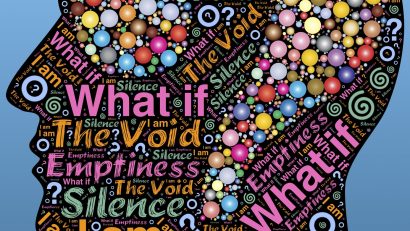With the launch of the latest Start Trek big-screen adventure, could there be a better time to finally get round to watching Star Trek: TNG?
Well, pretty much any time in the past 20 years would have made more sense. During my preteens and adolescence, the show seemed to be on every week, requiring dogged persistence and ingenuity on my part to avoid watching even a single episode. And remember, this was 1990, a time when my house had access to only four TV channels and no internet.
I didn’t avoid it out of a lack of interest in the genre (I was entering peak sci-fi interest years, and by the end of ST:TNG’s run on British TV, would have coincidentally joined my first sci-fi fan group) nor out of misplaced loyalty to the originals, but because I already knew the inarguable truth: that everything popular was shit. If people were excitedly looking forward to it, if there was hype, if people really cared – then it couldn’t have merit.
But Netflix brought ST:TNG back into my life and I began to wonder if, like Oasis, Baz Lurhman’s Romeo + Juliet or the dance moves to Cotton-Eye Joe, my teenage self had judged it too harshly*. It won over 30 awards. It revamped the Star Trek brand and was in the vanguard of the trend for remakes and reboots that now dominates our TV and film output. It’s a piece of classic sci-fi, and sci-fi is the great artistic obsession of the past 100 years. It’s got Patrick Stewart in it, FGS. Make an effort.
*I didn’t judge those things too harshly. They were all, and remain, terrible.
Season One:
1. Encounter at Farpoint
Straight out of the gate, a weird, campy alien decides to put humanity (in the form of the crew of the Enterprise) on trial. Captain Jean-Luc Picard mounts a spirited defence of our species, and, naturally, triumphs. There’s a strange air of special pleading about it, as if the writers feel they have to justify making yet another show with human protagonists.
The tedious old “humanity itself in the dock” trope is simply a chance for the viewing public to have its collective ego stroked by hearing that, despite all of the horror, cruelty, war and destruction that our species has wrought, we are still basically super-awesome and totally the best ever. In your face, weird campy alien. The argument goes ‘Yes, humanity has done a few shady things in the past, but this is far outweighed by its redeeming features, like…um…compassion, tolerance and creativity. None of which it displays in anything like the amounts it does violence, cruelty and naked self-interest, but hey. Don’t quibble.’ This always sounds to me like a cheating partner insisting that yes, they slept with other people, but at least they never forgot your birthday, and anyway, quit hanging onto the past.
Also, I’m calling it right now, Data is hot.
2. The Naked Now
The crew encounter a virus that makes everyone drunk. Except that apparently no one in the cast, crew or writing team has themselves ever got drunk, or spoken to or even seen at a distance anyone who has. So the effects are that everyone gets very hot, then wants to have sex. Dr Bev invents an antidote and everything is fine again.
Watching the cast stumble about seducing each other feels all wrong and embarrassing, like getting masturbation tips from David Attenborough. Apparently, it’s based on a Star Trek original series episode, and now that they mention it, I feel some long-repressed memories of being equally embarrassed by watching a drunk, amorous Spock.
It’s a weird choice for a second episode. The ‘a magic spell makes them have sex’ trope is for when the cast has established a level of sexual tension that requires lancing in order to satisfy the fans, but still allows for a return to the status quo in the next episode. Or for when the series has gone on so long that it is floundering badly and needs to do something, anything to drag the viewers’ eyes back to the screen. It’s basically the equivalent of the ‘make Barbie and Ken have sex’ stage that all small children go through.
3. Code of Honour
Oh my actual god, the ship encounters a race of aliens who look like black people, speak with an ‘African’ accent and dress like extras from a panto version of Aladdin. Oh, and they also KIDNAP BLONDE WOMEN. And Deanna Troi says that they are at a less advanced stage of civilisation than humans. OMG SO RACIST PLEASE STOP.
Deanna Troi is….what? She “has the capacity to sense emotions”, does she? You know humans have that too, right? Except, perhaps, the Captain. Jean-Luc seems incapable of even the most cursory of face-reading, turning helplessly to Troi when an alien leers openly at Yar and asks her to accompany him to the Holodeck (Oo-er missus, steady on, etc). Troi informs him ‘there was some sexual attraction towards her’ at which Picard nods sagely and practically makes a note with pad and pen.
Wiki Trivia: Troi was originally going to have four breasts, until thankfully, Roddenberry’s wife pointed out how grim and creepy that would be.
4. The Last Outpost:
The Ferengi are here! They kick off by saying how ugly humans are – ahahahaha it’s a joke because they are really ugly by our standards! Leaving aside the delicious, side-splitting irony, one would think that they would have got over the ‘other species look different to us’ thing by now.
They all beam down, and there’s a magic guy, and he might kill them but then he doesn’t and the Ferengi caper about like extras from Tales From Europe, and suddenly everything’s fine. Please can anyone who understands what the ending of this one was all about let me know.
The Ferengi are the second species (in only four episodes) that go out of their way to marvel at how humans allow their females to undertake tasks and generally be present. (I predict a race of females who enslave their males cropping up soon, to make some massive, heavy-handed point about sexism working both ways.) This show must be careful not to crick its neck while giving itself a blow job for not being massively misogynist, though. Yes, it does have a female security officer, but all the main jobs are male, all the aliens they encounter are male, and the only female regularly on the bridge is in charge of touchy-feely emotion-y stuff. Oh, there’s a female doctor whose main personality trait so far is ‘has a son’.
Wiki Trivia: Wesley Crusher was originally going to be female, but Roddenberry decided that a male character would have ‘more storyline options’. Because girl characters are limited to a) falling in love, and b) getting their period.
5. Where No One Has Gone Before:
In which we learn that Wesley Crusher is actually Jesus Skywalker. An alien comes aboard, does a weird warp speed thing that makes everyone hallucinate French grandmothers, drops a bombshell about Wes being SPECIAL and sacrifices himself. So far, so normal.
I know I’m supposed to hate Wesley Crusher, but I just don’t. I don’t really understand why children are allowed on the ship at all, but hey, perhaps for Starfleet, every day is ‘bring your be-pullovered-teenager to work day’. He’s wearing a particularly luscious chenille number in this episode, I strongly suggest you check it out.
Wiki Trivia: Gene Roddenberry’s middle name is Wesley. Make of that what you will.
PICARD: Quick, everyone – think happy thoughts.
TROI: I feel such an abundance of well-being on the ship!
OMG YAS UR TOTALLY PSYCHIC I GOT CHILLS
That’s all for this week, folks! Tune in next week for the next exciting and relevant part of ‘Watching Every Episode of ST:TNG for the First Time’. If anyone can explain to me me what episode 4 is all about, please leave a comment.


